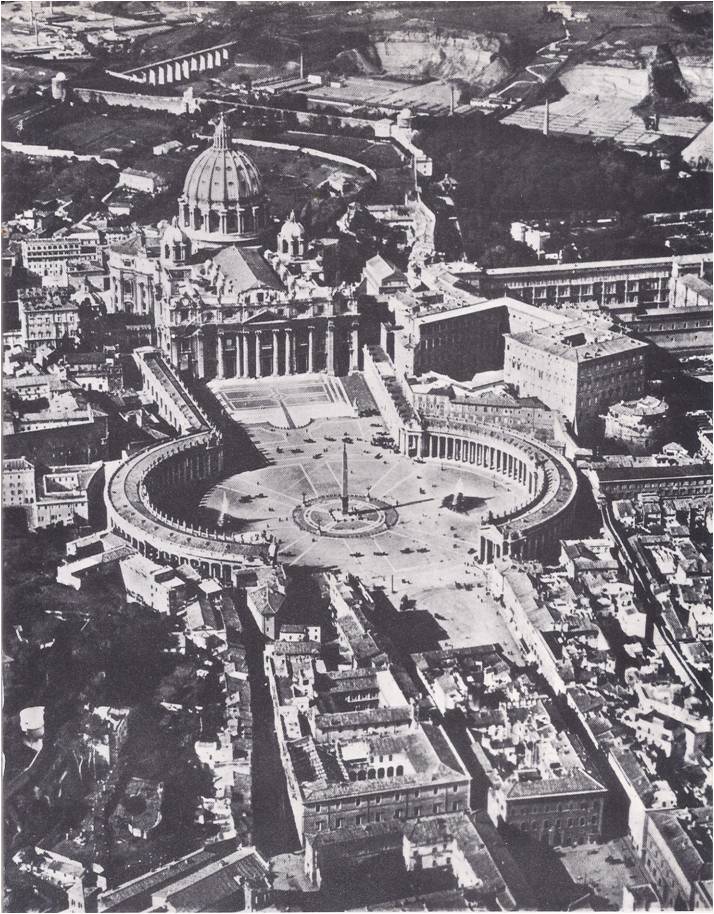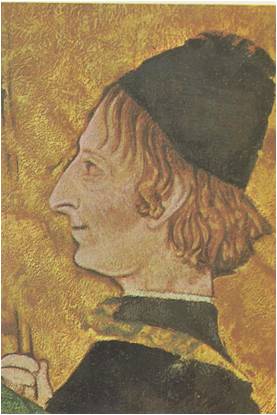In 1492, young Giovanni de’ Medici bade farewell to his father, Lorenzo the Magnificent and left Florence to take his place in Rome among the cardinals of the church. At sixteen, Giovanni was a nobleman in the court of the pope, a man of influence and power. That was fortunate, for when Giovanni was eighteen, his family’s power collapsed. The Florentines drove the Medici from their city and Giovanni, who had come home for a visit, narrowly escaped being stoned by the citizens who once had cheered him. As he crept out of the city, disguised as a poor friar, he swore that he would one day return in triumph. First, he thought, he must look to his career in the church. Whatever the Florentines did, he was still a cardinal and in the papal court there were many ways for a clever man to rise to greatness. When he had crossed the Tuscan border, Giovanni threw off his humble disguise, put on the crimson robes and red hat that marked him as a “prince of the church” and took the road that led to Rome. The young cardinal was not alone in hoping to make his fortune in Rome. Indeed, the old city teemed with ambitious men of every sort — scholars and scoundrels, diplomats and spies, millionaires and fortune-hunters, priests and professional murderers. Rome had known every sort of splendour and evil. Memories of unmatched elegance and unbelievable cruelty lingered in the ruins of temples and arenas built by ancient emperors. Grim fortress-houses were reminders of an age of violence, when the bloody feuds of rival clans of nobles had turned Rome into a ghost city. Now there were new mansions, palaces and lofty churches. A new magnificence had come to Rome with the gold that poured into …
Read More »Gentlemen, Scholars and Princes 1400 – 1507
One day in the fifteenth century, the Turkish potentate of Babylonia decided to send gifts to the greatest ruler in Italy. He consulted his counselors and men who had traveled widely in Europe, asking them who best deserved this honour. They agreed that one Italian court outshone the rest and that his court must surely be the home of Italy’s mightiest sovereign. They did not name Milan, the home of the proud Sforza, nor Florence, the city of the clever Medici. The most magnificent court in Italy, they said, was at Ferrara, the capital of the dukes whose family name was d’Este and to Ferrara the Turkish potentate’s ambassadors carried the presents. Ferrara was small, a mere toy state in comparison to Milan or Florence. Actually, it was not an independent state at all. Like several of its neighbours in central Italy, Ferrara had for centuries belonged to the Church. Its duke paid an annual tribute to the pope for the privilege of governing his family dukedom himself. Even so, the Turkish potentate’s advisers had made no mistake. No court in Italy could match the splendor of the court commanded by the dukes of little Ferrara. During the Renaissance, there were many such small cities that won fame. It all depended on their rulers — the ambitious dukes or counts or sometimes, commoners who had gained riches and power. With their money, they, too, hired fine artists, sculptors and architects; they, too, collected manuscripts and things of beauty. So the small cities were as much part of the new age as Florence or Milan. In that new age, Ferrara was a place of old fashioned grandeur. Its dukes, the d’Estes, had come to power in the last days of chivalry. In 200 years, the d’Estes had turned Ferrara into a …
Read More »

